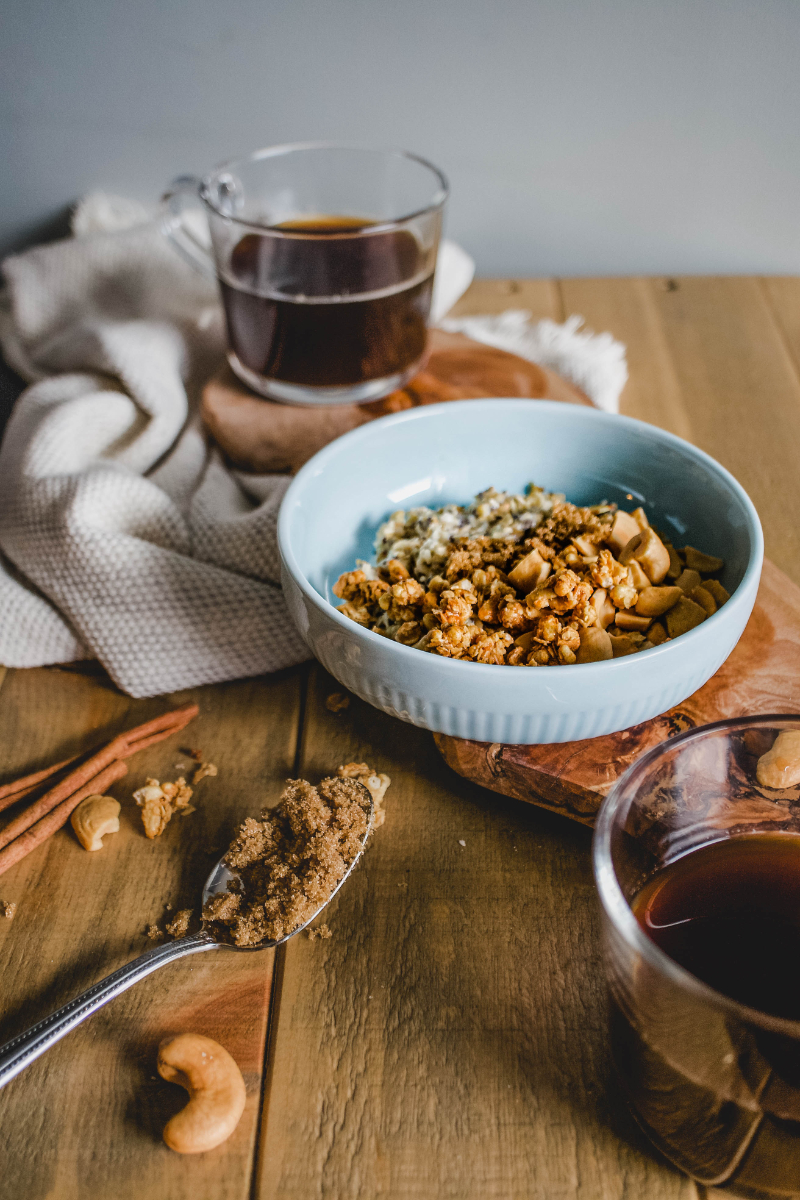How Many Carbs Are There in Brown Sugar: A Quick Guide
Are you curious about how many carbs are in brown sugar? Brown sugar is a popular sweetener used in many recipes, from baked goods to marinades. It is made by mixing white sugar with molasses, which gives it a distinctive flavor and color. While brown sugar may be a tasty addition to many dishes, it is important to be mindful of its nutritional content, especially if you are watching your carbohydrate intake.
Carbohydrates are an essential nutrient that provide energy to your body. However, consuming too many carbs can lead to weight gain and other health problems. If you are following a low-carb diet or monitoring your blood sugar levels, it is important to know how many carbs are in the foods you eat, including brown sugar. In this article, we will explore the nutritional content of brown sugar and how it compares to other sweeteners.

Nutritional Profile of Brown Sugar
Brown sugar is a sweetener that is often used in baking and cooking. It is made by combining white sugar with molasses, which gives it its characteristic brown color and flavor. In this section, we will take a closer look at the nutritional profile of brown sugar.
Carbohydrate Content in Brown Sugar
One teaspoon of brown sugar contains approximately 4.5 grams of carbohydrates, all of which come from sugars. There is no fiber or starch in brown sugar, which means that it is a simple carbohydrate that is quickly absorbed into your bloodstream. The glycemic load of brown sugar is estimated to be 3, which is considered to be low.
If you are watching your carbohydrate intake, it is important to be mindful of how much brown sugar you are consuming. While a teaspoon of brown sugar may not seem like a lot, it can add up quickly if you are using it frequently in your cooking or baking.
Comparison with White Sugar
White sugar is another common sweetener that is often used in baking and cooking. One teaspoon of white sugar contains approximately 4 grams of carbohydrates, all of which come from sugars. This means that white sugar and brown sugar have a similar carbohydrate content. However, brown sugar does contain slightly more calories than white sugar due to the molasses content.
When it comes to choosing between brown sugar and white sugar, the decision often comes down to personal preference. Brown sugar has a richer flavor and can add a caramel-like taste to your baked goods. However, white sugar is more neutral in flavor and is often preferred in recipes where the sweetness of the sugar should not be the main focus.
Overall, brown sugar is a tasty and versatile sweetener that can be used in a variety of recipes. However, it is important to be mindful of your carbohydrate intake and to use brown sugar in moderation.
Measuring Carbohydrates in Brown Sugar
Brown sugar is a common sweetener that is used in many recipes, from cookies to cakes to barbecue sauce. However, if you are watching your carbohydrate intake, you may be wondering how many carbs are in brown sugar. Here are some tips for measuring carbohydrates in brown sugar.
Carbs in Teaspoons
One teaspoon of brown sugar contains approximately 4 grams of carbohydrates. This may not seem like much, but if you are adding multiple teaspoons of brown sugar to a recipe, the carbs can add up quickly. To keep track of your carbohydrate intake, be sure to measure the brown sugar carefully.
Carbs in Cups
If a recipe calls for a cup of brown sugar, you may be wondering how many carbs are in that amount. One cup of brown sugar contains approximately 170 grams of carbohydrates. This is a significant amount, so if you are watching your carb intake, you may want to consider using a sugar substitute or reducing the amount of brown sugar in the recipe.
When measuring brown sugar, be sure to pack it firmly into the measuring cup or spoon. This will ensure that you are getting an accurate measurement. If a recipe calls for “packed” brown sugar, this means that you should press the brown sugar into the measuring cup or spoon until it is tightly packed.
In summary, brown sugar contains a significant amount of carbohydrates, so it is important to measure it carefully if you are watching your carb intake. By measuring brown sugar accurately, you can enjoy your favorite recipes while still maintaining a healthy diet.
Impact of Brown Sugar on Health
Brown sugar is a sweetener that is commonly used in many households. It is made by mixing white sugar with molasses, giving it a brown color and a slightly different taste. While it is a popular ingredient in many dishes, it is important to understand how it can impact your health.
Blood Sugar Levels
Brown sugar is a type of carbohydrate, which means it can affect your blood sugar levels. When you eat foods that are high in carbohydrates, your body breaks them down into glucose, which is then used as energy. However, if you eat too many carbohydrates, your blood sugar levels can become too high, which can lead to health problems such as diabetes.
According to Healthline, brown sugar has a slightly lower glycemic index than white sugar, which means it may not raise your blood sugar levels as quickly. However, it is still important to monitor your intake of brown sugar and other carbohydrates if you are concerned about your blood sugar levels.
Weight Management
Brown sugar is a calorie-dense food, which means it can contribute to weight gain if consumed in excess. One teaspoon of brown sugar contains about 17.5 calories, all of which come from carbohydrates. This can add up quickly if you are using brown sugar in large quantities.
If you are trying to manage your weight, it is important to be mindful of your intake of brown sugar and other sweeteners. Consider using natural sweeteners such as honey or maple syrup in moderation, or using spices such as cinnamon or nutmeg to add flavor to your food without adding extra calories.
Overall, while brown sugar can be a tasty addition to many dishes, it is important to be mindful of how much you are consuming and how it can impact your health. By monitoring your intake of brown sugar and other carbohydrates, you can help maintain healthy blood sugar levels and manage your weight.






